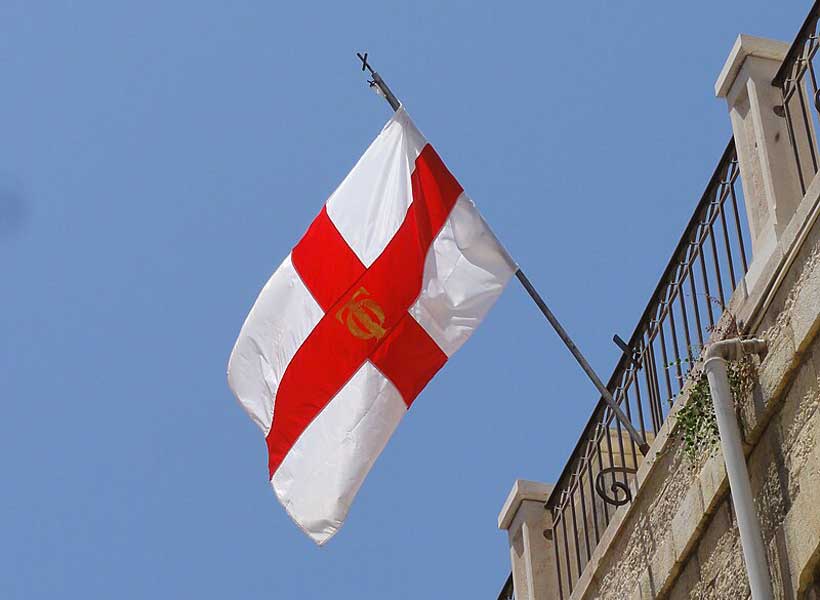The Patriarchate of Jerusalem is one of the most ancient thrones of Christianity. Its prestige lies in its uninterrupted custodianship of the Holy Land, yet its political weight has traditionally been limited compared to Constantinople, Alexandria, or Moscow. In recent years, however, Jerusalem has begun to act with growing assertiveness, repositioning itself on the global Orthodox chessboard. This is not an isolated gesture. It is a coherent strategy that combines ecclesiastical maneuvering with diplomatic calculation.
A measured distance from Constantinople
For centuries, the Ecumenical Patriarchate has exercised a primacy of honor that shaped Orthodox order. Its role became visible one more time after the Ukrainian autocephaly of 2018–2019, which triggered Moscow’s rupture with the Ecumenical Patriarchate and fragmented global Orthodoxy. In this fragile landscape, Jerusalem’s refusal to show customary respect to the Ecumenical Patriarchate, such as during Patriarch Theophilos’ visit to Constantinople while the Ecumenical Patriarch was absent, carried a strong symbolic charge.
In the Orthodox world, protocol is substance and responds to centuries-old traditions and rules. Jerusalem has chosen to highlight its autonomy, presenting itself less as a subordinate throne and more as an equal player that answers primarily to its own pastoral realities.
A visible embrace of Moscow
Parallel to this distancing, the Patriarchate of Jerusalem has cultivated visible proximity with Moscow. Encounters between Patriarch Theophilos and Patriarch Kirill in international forums are carefully staged. They showcase Jerusalem as one of the few Orthodox centers willing to stand with Moscow in public, at a time when the Russian Church is cut off from Constantinople after her own decision.
The significance is twofold. First, Jerusalem gains leverage by being seen with Moscow; it becomes indispensable to those who seek to keep channels open with the Russian Church. Second, it signals to Constantinople that Jerusalem has alternatives. In a polarized Orthodox world, Jerusalem positions itself as the third pole.
Exploiting the Orthodox divide
The fracture between Constantinople and Moscow is the defining fact of the present Orthodox landscape. Since the Ukrainian question, communion has been ruptured, and every inter-Orthodox initiative has become contested ground. Jerusalem has seized this moment. By maintaining relations with Moscow and refusing to follow Constantinople’s spiritual leadership, it elevates itself into a power broker.
The “Amman initiative,” launched by Patriarch Theophilos in 2020, was an early signal. Ostensibly a fraternal gathering, it was interpreted as an attempt to create a parallel framework of Orthodox coordination. The same logic continues today since the moment Jerusalem does not merely mediate, it seeks to shape the system in ways that enhance its own centrality.
Political dimensions and secular diplomacy
This ecclesiastical strategy intersects with secular diplomacy. Patriarch Theophilos’ meeting with Turkish President Recep Tayyip Erdoğan in Istanbul, without prior coordination with Athens or Constantinople, revealed how Jerusalem leverages regional power to reinforce its own profile. For Ankara, the encounter offered a stage to project international acceptance. For Jerusalem, it was an assertion of autonomy—the ability to engage heads of state directly, without reference to traditional Orthodox hierarchies.
Such moves demonstrate the Patriarchate’s dual logic. Ecclesiastical autonomy and political visibility. Yet they also risk entangling Jerusalem in agendas that exceed its spiritual mandate. When political authorities instrumentalize ecclesiastical actors, the cost is often borne by the broader unity of the Church.
At the heart of Jerusalem’s maneuvers lies a profound redefinition of legitimacy. The Patriarchate claims that its authority flows not from subordination to Constantinople but from its continuous guardianship of the Holy Land, its role as protector of Christian presence in the Middle East, and its ability to secure survival under adverse conditions. This narrative resonates with local communities and appeals to external partners who view Jerusalem less as a hierarchical institution and more as a political-religious actor with unique assets.
By presenting itself as sui generis, Jerusalem attempts to blur the lines of canonical order. It elevates historical custodianship over primacy of honor and pastoral necessity over hierarchical protocol. This reframing is powerful, but it destabilizes the traditional equilibrium of the Orthodox system.
Jerusalem’s strategy carries immediate benefits but long-term risks. Constantinople interprets distancing as defection. Moscow views cooperation as tactical, not loyal. Regional governments value the Patriarchate’s visibility but also use it for their own agendas. In the long run, Jerusalem risks being perceived less as a bridge and more as an opportunistic actor.
The Greek dimension
Greece remains a critical backdrop. Athens has aligned itself with the Ecumenical Patriarchate, supporting Ukrainian autocephaly and standing by the Fanar, defending its historical and canonical rights. However, Jerusalem invokes Greece whenever it needs legitimacy or support, especially to protect its institutions and heritage. This selective approach exposes Athens to the maneuvers of the Patriarchate without giving it substantial influence, as Greece is projected by Jerusalem as a guarantor but not as a decision-maker.
During the Sinai crisis, the Patriarchate of Jerusalem engaged Greece in a manner that combined dependence with instrumentalization. On the surface, Athens was acknowledged as a historical guarantor of the monastery’s continuity and as the institutional shield necessary for its protection. In practice, however, the Patriarchate pursued its course with minimal coordination and little transparency toward the Greek state. This dual approach created a paradox: Greece was projected internationally as an indispensable partner, yet it was excluded from substantive influence over the management of the crisis. By invoking Greek legitimacy when useful while retaining full control of decisions, the Jerusalem Patriarchate reinforced its own position but left Athens diplomatically exposed.
